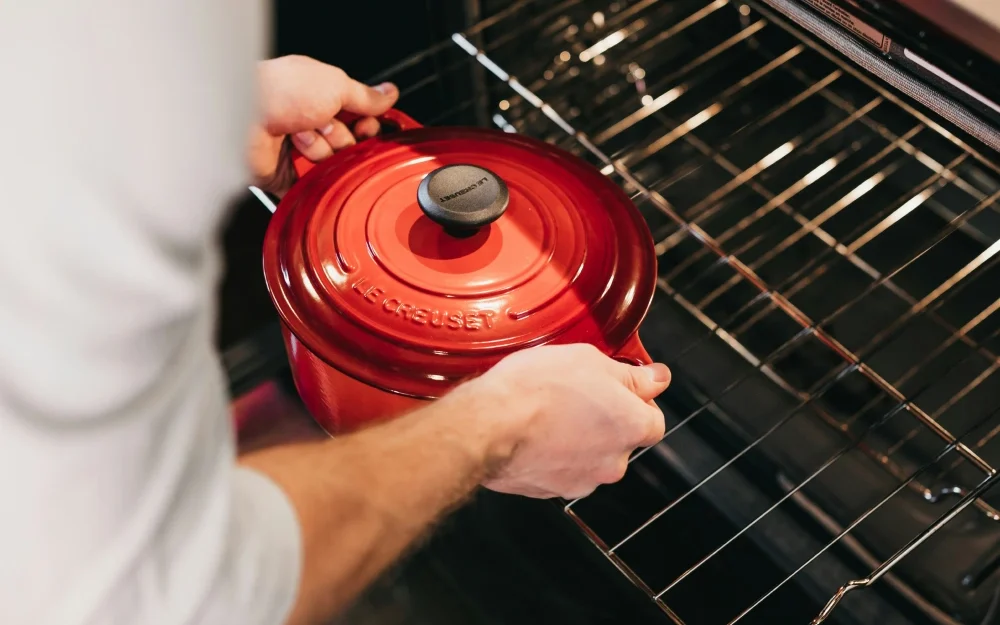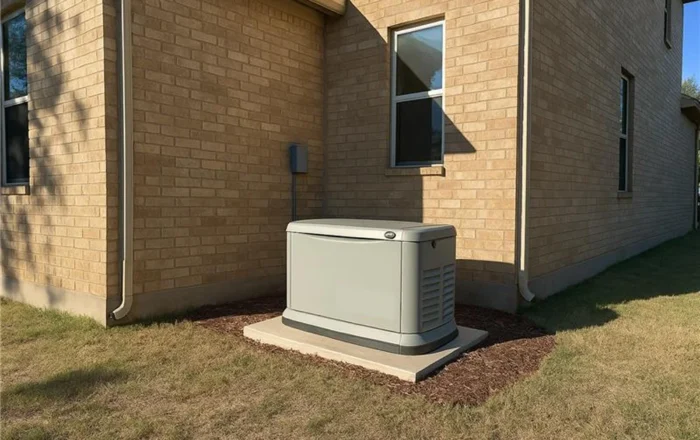How to Choose a Generator for Your Home
6 minute readHow to choose the right generator for your Texas home
Home > Blog > Gas vs Electric Ovens: Weighing the Pros and Cons
2 minute read • Last update May 2024

Unlike gas or electric stoves, ovens have a closed compartment with heating elements, providing a controlled space for baking, roasting, and broiling. Some appliances integrate both a stove and an oven (into what’s commonly known as a range). Not sure which model to choose? Here’s a comprehensive list of gas oven vs electric oven pros and cons and some FAQ answers to help guide you.
The inside of gas ovens feature a visible burner or igniter at the base, typically near the back. This is the component responsible for generating the flame that provides the heat.
Besides the fuel source, there are few visible differences between a gas and electric range. However, there are a few practical differences to consider.
You’ll see a visible flame inside a gas model when the oven is on. Whether it’s installed using a power cord or gas line is also a telltale sign. Plus, in the case of a range, the surface of an electric model will be flat, whereas gas burners are raised.
The answer depends on what type of cooking you’re doing. If you ask a trained chef, many say they prefer gas because it helps them achieve high heat faster. However, bakers tend to prefer electric models because they distribute heat more evenly and are easier to clean and maintain. Either way, for most home cooks, the practical difference tends to be negligible.
Calculating the overall cost-efficiency of an electric oven vs gas oven includes accounting for initial purchase, installation, and energy efficiency. As with stoves, gas ovens, and ranges are typically more expensive to buy and install but cheaper to operate in the long run. So, to get the best deal, you’ll need to carefully weigh the pros and cons of a gas oven vs an electric oven against your budget and the utility rates in your area.
Wherever your gas oven vs electric oven research takes you, choosing a trustworthy and reliable utility provider is vital.
At BKV Energy, we specialize in delivering straightforward energy plans at affordable prices. With simple fixed rates and no minimum usage requirements or monthly base charges, switching to one of our plans could save you up to $500 per year.
Contact us today to learn more and find the right plan for your household.
Graham Lumley, Digital Marketing Manager at BKV Energy, leads digital and traditional marketing strategies, focusing on educating Texans about the state's deregulated energy market. With over 8 years of marketing experience, he creates content to help consumers understand and save on their energy bills, bringing a fresh and dynamic approach to the industry.

How to choose the right generator for your Texas home

Energy Saving Tips Home Improvement
Choosing the right energy-efficient door can help Texas homeowners reduce cooling costs and improve home comfort year-round.
Get $50 off your electric bill!
Use code BKVEJOINUS50
Enter your zip code to shop BKV Energy's affordable, fixed-rate Texas electricity plans. Use the promo code for $50 off your electric bill.